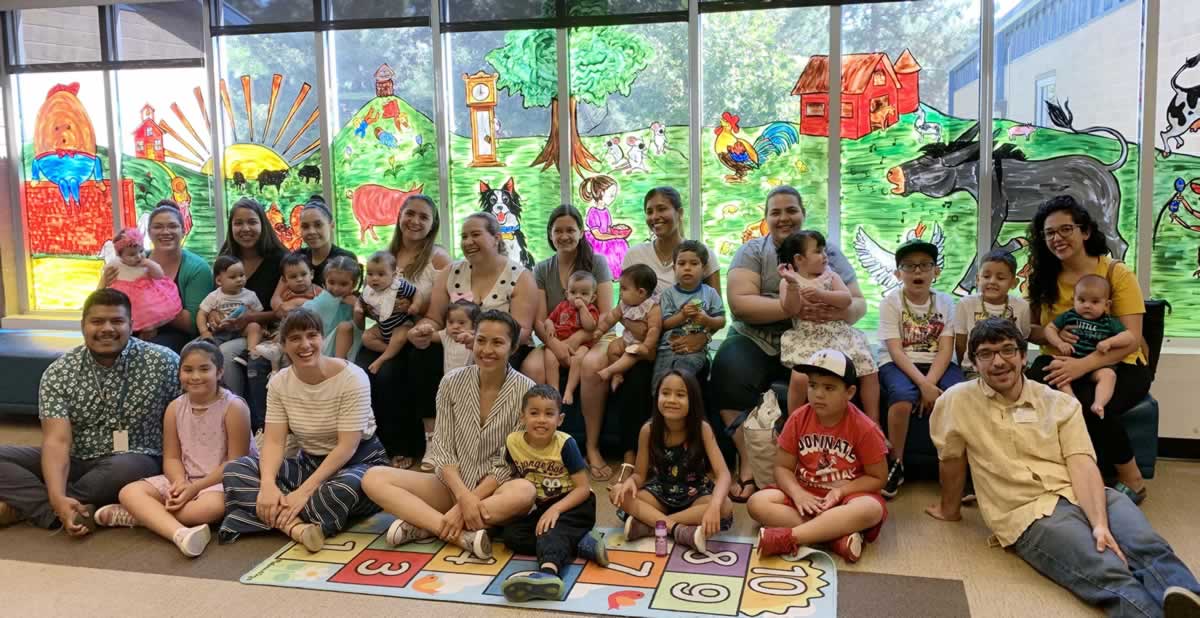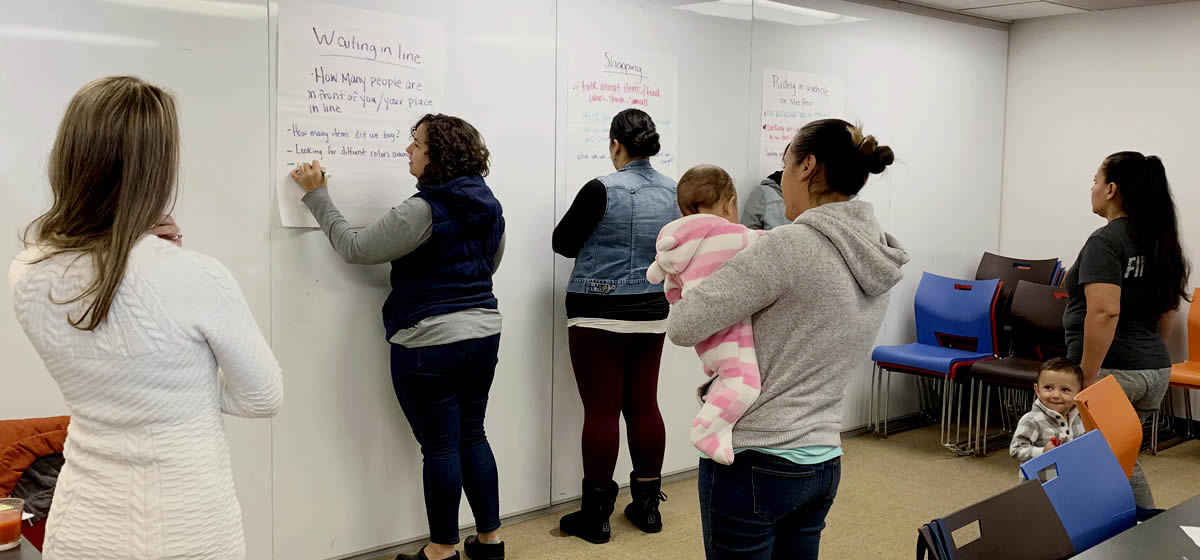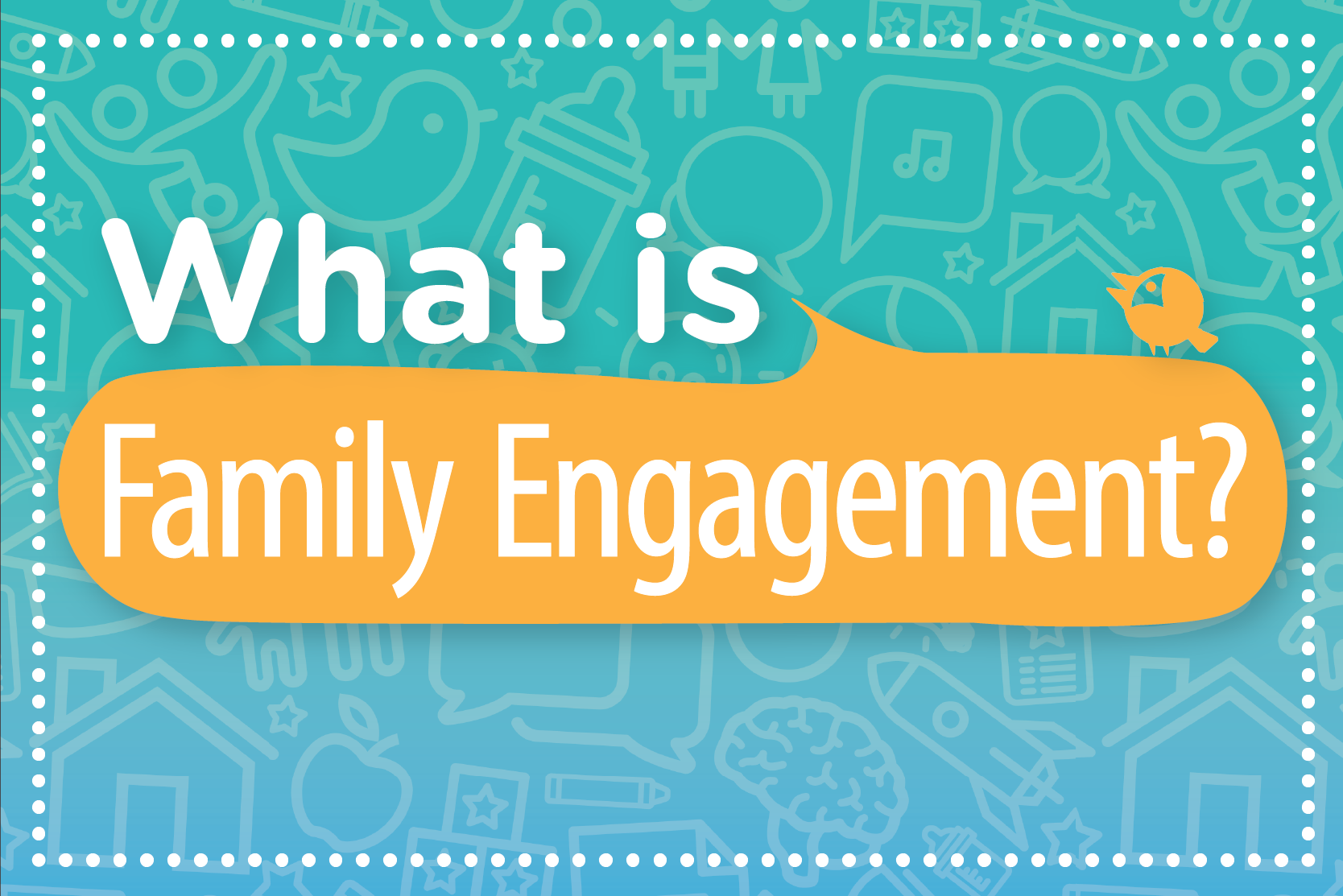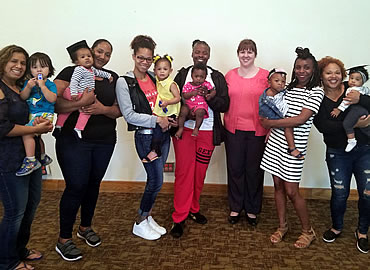One of the greatest things we are learning about working with LENA Start at the Denver Public Library has been about how deep and authentic our community connections have been while working with families. For ten weeks we are asking families to sit with us at the table and be open and willing to learn with other caregivers in their community. In these ten weeks, families are learning about child development and other families and the struggles they face.
As staff, we are also learning with them about family dynamics, expectations, failures, and their drive to see their children succeed. Every week the families bring new experiences with them that shape their identity as parents. These experiences can often fold over into our LENA Start sessions and be a great source to get to know the families and build authentic connections. These connections are very powerful, as we are able to gain insight to truly understand the experience of the community and build programs that are responsive.

Just as it takes a brave and vulnerable person to open up and share their experience, it takes staff that are willing to be just as open and proactive to the needs of the families. During one of our LENA sessions at the library, we had a parent share her experience with depression and the heavy burden she felt as a parent. Others in the room agreed and shared similar ideas. At that moment we felt the community coming together and supporting each other, and we realized the impact that a program like LENA Start would have in our communities.
As staff, we were receptive and were able to provide the parents with a space where they could relax and relieve some of their stressors. We brought in a specialist to talk with them about the importance of self-care, and with the help of a team member, we were able to provide a baby yoga session for the parents. In our program evaluation, these activities were constantly highlighted as a positive. In a recent podcast published by the Center on the Developing Child at Harvard, they give the analogy of charging a phone in order for it to function, and they ask caregivers: Who or what is your charging station? In the case of these caregivers, the LENA Start group became their charging station for ten weeks. Even after the cohort was over, when we ran into parents at other library events, they would share with us that many of them were still meeting as a group. This speaks to the impact that we are having with LENA in our neighborhoods across Denver.
Other times, families need other types of support that they may not be getting from a group setting and it requires the coordinators to look carefully. We must be able to read between the lines to make the program experience more accessible and equitable for families. This goes beyond providing child care and transportation and really listening to what families are saying.
"By listening with intent to what families are saying, we are not only promoting our work, but creating a space where they can share their lived experiences openly and are willing to return to future programming."
-Pedro Mendez
These experiences are shaping the way we are looking at LENA Start and how we are approaching our work in the Early Learning Department with families. We are considering the whole family and this shapes how programs are being offered. We want to make sure that families feel welcome and can succeed by taking advantage of all we are offering. By listening with intent to what they are saying, we are not only promoting our work, but creating a space where they can share their lived experiences openly and are willing to return to future programming.
About Denver Public Library
The Denver Public Library connects people with information, ideas and experiences to provide enjoyment, enrich lives and strengthen our community. Learn more.







